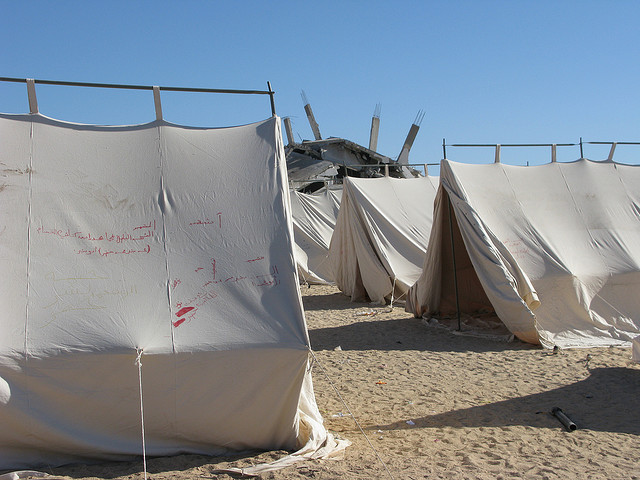The Feast of Booths and the Kingdom of God
The Feast of Booths is not something we often take the time to study because it involves a lot of time in the Old Testament. However, the New Testament assumes you know about it! In fact, knowing about the Feast of Booths helps us understand the Transfiguration in Matthew 17.

What is the Feast of Booths?
The Feast of Booths (Sukkot in Hebrew) was important for those in the OT and the NT. It was one of three times a year when all of the males in Israel were mandated to come to Jerusalem before God (Deut 16:16). The Feast of Booths was an 8-day celebration (beginning Tishri 15 on the Jewish Calendar), which happens to be in September/October in our calendar. During this feast, the people would live in temporary shelters (booths) and give offerings to the Lord (Lev 23:36). According to Lev 23:42, this was for native Jews only.
The Purpose of the Feast of Booths
The purpose of the Feast of Booths was to remind Israel that God brought them out of the land of Egypt, redeeming His people and giving them salvation from Egypt (Lev 26:43). Israel went from living in Egypt to the wilderness at Sinai, and their temporary shelters during the Feast of Booths was to be a reminder of when the nation lived in temporary shelters coming out of Egypt. It was a reminder of God’s faithfulness and goodness to Israel.
The Feast of Booths and the Kingdom of God
There is a very interesting detail found in Zechariah 14 concerning the kingdom of the Messiah. Zechariah 14 describes the return of the Messiah and His victory over those who oppose the people of Israel. After having secured His kingdom, Zechariah 14:16 says: “Then it will come about that any who are left of all the nations that went against Jerusalem will go up from year to year to worship the King, the Lord of hosts, and to celebrate the Feast of Booths.”
Here we see the application of the Feast of Booths given to the nations being ruled by Israel in the Messiah’s kingdom. Previously the Feast of Booths was applicable to the Israelites. However, in the Zechariah 14 world, the nations will be obligated to worship and commemorate the Lord’s faithfulness and redemption. According to the prophet Zechariah, there will be a severe penalty for those who choose not to celebrate (Zech 14:18-19).
It seems that the significance of the Feast of Booths undergoes a change in significance at this time. Maybe the Feast of Booths is for the nations their own memorial of their wilderness wanderings away from God?
The Feast of Booths and the Transfiguration of Matthew 17
Interestingly, Zechariah 14 seems to be the background of the Transfiguration in Matthew 17. After Peter sees the glory of the Messiah, he proclaims that he will build three booths if the Lord allows him (Matt 17:4).
Was Peter just a crazy man who suddenly decided to camp out? No, he realized that Zechariah 14 prophesied that when the Messiah comes in His kingdom, then there will be a multinational celebration of the Feast of Booths. Peter wanted to get a head start on the celebration! However, it was not yet time for Jesus to set up His kingdom, and so it was not yet time to commemorate that celebration.
In the case of the Feast of Booths, the details of the Old Testament help us understand the Messiah’s future kingdom. Additionally, this information also sheds light on why Peter acted the way they did during the Transfiguration. After all, like a good Jewish schoolboy, Peter would have relied upon the Old Testament as the main basis for his theology. Thus, we are reminded again that we ought not to neglect a detailed study of the Old Testament, for it forms the foundation upon which the New Testament builds.
2 Comments
Joe Elledge
A well written article. Your suggestion that Peter was anticipating a future Feast of Booths on the mount of transfiguration is most likely correct. I would like you to further explore the eschatological implications of the fall feasts (Trumpets, Atonement, and Tabernacles) in future articles. After all, Christ fulfilled the spring feasts down to the literal day in His first advent. What would such a literal fulfillment look like for the Fall Feasts. Finally, I have often wondered if the booths used in the celebration of Tabernacles symbolize something more than the temporary shelters used by the Israelites during the Exodus. Could they also, perhaps, prefigure the pre-resurrection bodies of believers? Didn’t Paul refer to his body as a tent? God bless.
Peter Goeman
Thanks for the thanks! :)